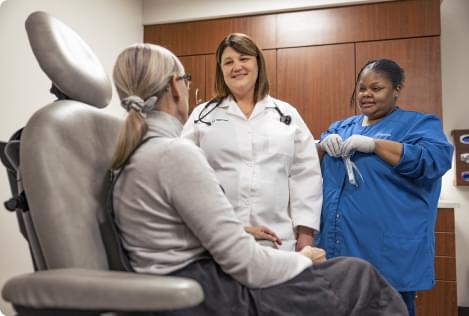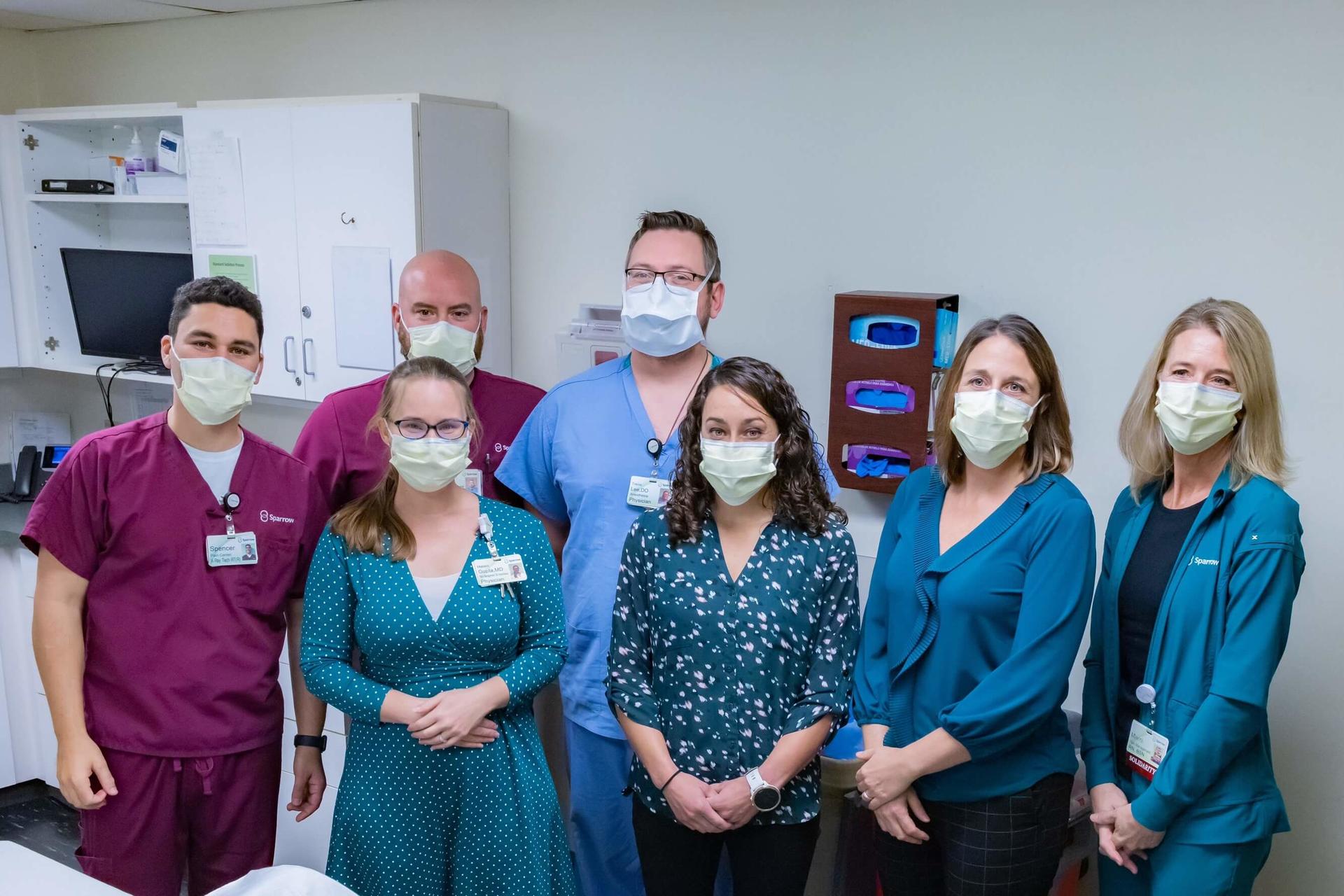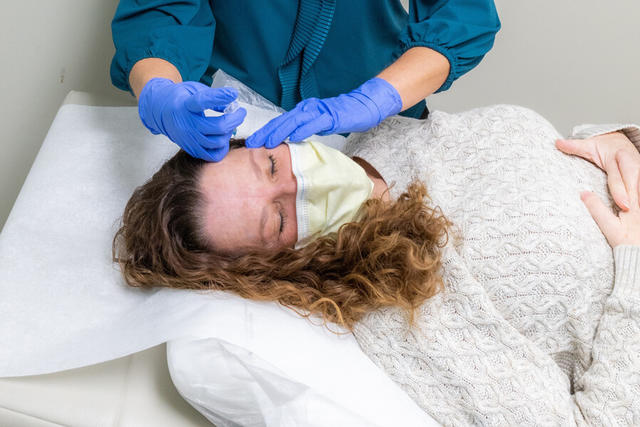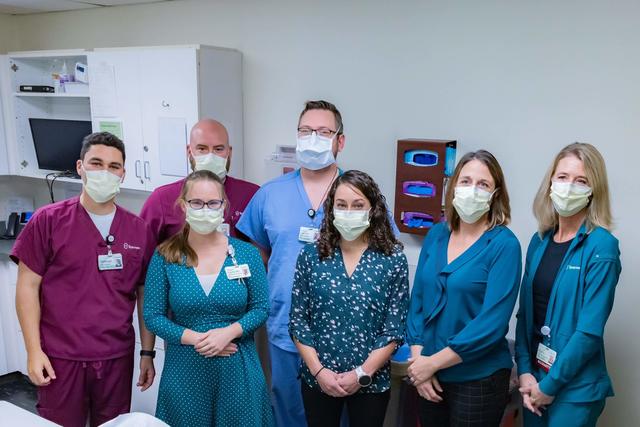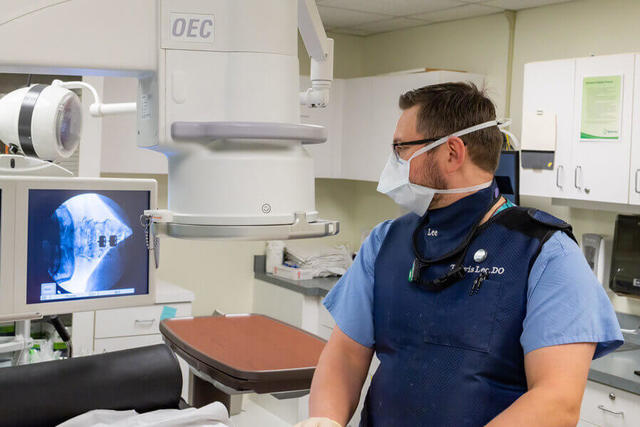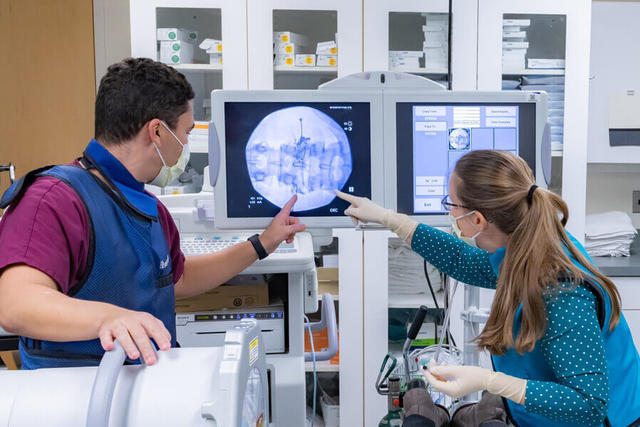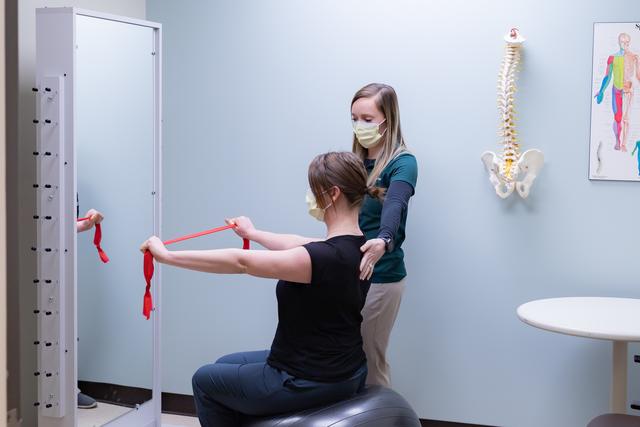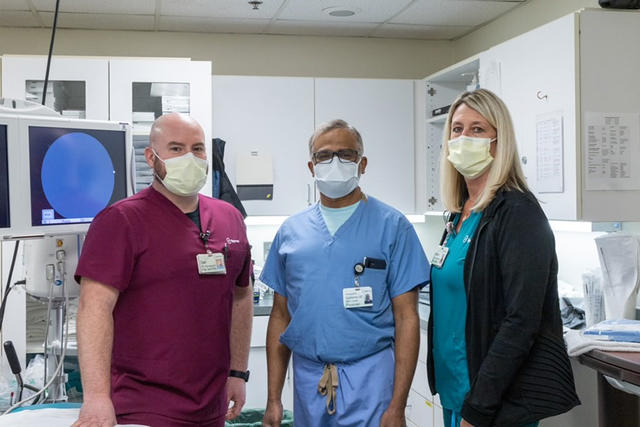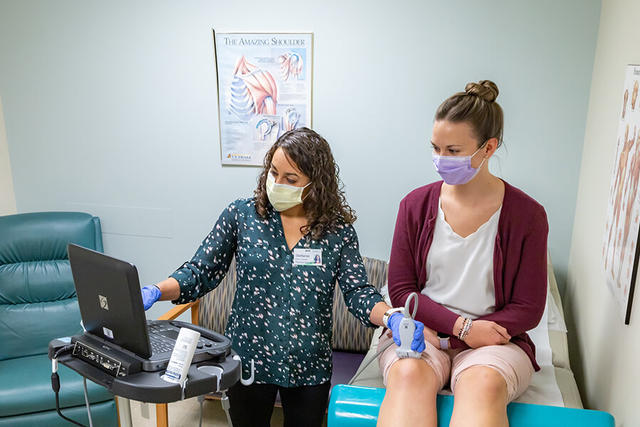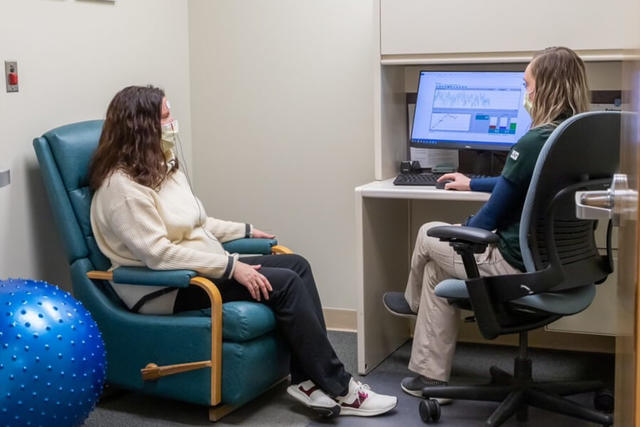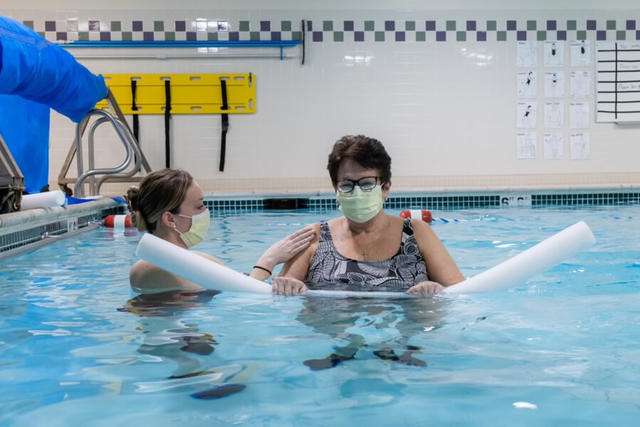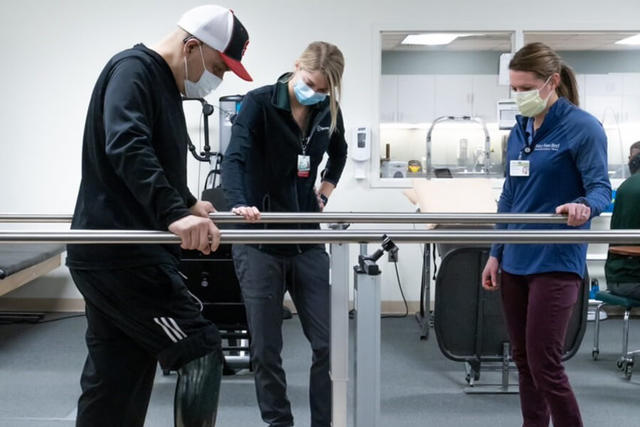Treatment to get you back to feeling like yourself
At the UM Health-Sparrow Pain Management Center, we understand the crippling physical and emotional effects that pain can create. That is why our mission is to provide compassionate care to everyone, every time. Our comprehensive pain management teams work to actively improve our patients' lives by treating the physical, functional, emotional and psychological needs of those with acute and chronic pain, including headaches and back pain.
A collaborative approach
Our team at the UM Health-Sparrow Pain Management Center in Lansing is comprised of an interdisciplinary group of medical and behavioral professionals that have a passion to help you regain control of your life. We have clinical staff trained in interventional pain management, pain psychology, occupational therapy, Botox procedures for chronic headaches, joint injection, medication management, and anti-inflammatory diets.
After being referred by your physician, one of our care managers will contact you. This Care Manager will remain with you to assist you with your journey through your Pain Management experience. They will work with the interdisciplinary team to understand your pain better, help you set your goals for your pain, guide you through necessary insurance requirements, help you with referrals for internal and external services, answer your questions and assist you with each step of the way toward living a functional life.
Evaluation and customized treatment
One of our pain experts will complete a thorough evaluation to establish an effective treatment plan. This may include a physical, functional, and psychological exam.
Following this evaluation, the physician will discuss your treatment options. During the course of treatment, our clinical team is here to support you by answering any questions from you or your support person. Your referring physician, and any other physician you request, will receive reports regarding your treatment plan and progress.
The clinical team will review your treatment progress at regularly scheduled case conferences to monitor the best ways to help you succeed. This involves review of your treatment plan, goal setting and discharge planning. If any changes to your treatment plan are necessary, it will be discussed with you prior to implementation.
Once your treatment goals have been met, your care will be transferred back to your referring physician. We want to ensure that you are able to get back to your functional life and will offer periodic follow-up treatments and services as needed.
Scheduling
Every effort is made to expedite the scheduling of patients with acute pain or with emergency pain syndromes, such as shingles. Scheduling times may vary, but the goal is to see patients with acute pain within three business days and those with chronic pain within two weeks. A referral packet that includes information about the center, appointment time, registration information, and a patient questionnaire, is mailed to you for completion prior to your scheduled appointment.
Insurance and costs
Most major insurance plans as well as workers’ compensation, Medicaid, Medicare, and auto insurance usually cover pain management services.
If your insurance company requires prior authorization, the treatment plan will be reviewed with them for approval. You are expected to check with your insurance company before scheduling an appointment to determine your level of coverage.
It is your responsibility to work with our financial counselor and your insurance company to insure your insurance carrier has authorized treatment and payment. If your insurance plan does not cover any portion of the pain management services received, you will be responsible for the payment.
Locations
Lansing Pain Management
Carson Pain Management
Clinical Services
Frequently Asked Questions
The UM Health-Sparrow Pain Management Center evaluates and treats individuals with acute and chronic pain.
You must have a physician's referral to the Pain Management Center.
Individuals referred to the Pain Management Center are called promptly by the nurse case managers for a telephone interview. Within one or two days of this interview, the individual's case is reviewed by a Pain Management Center nurse case manager, a physician and possibly by a pain psychologist.
Based on this review, the individual is scheduled for an initial evaluation. The Pain Management Center physicians are anesthesiologists with extra training in the diagnosis and management of pain. We also have a neurologist on staff who specializes in headache pain. The Pain Management Center psychologist specializes in the psychological support of pain in individuals and offers individual and group treatment to help patients cope with pain.
Most insurances including commercial, auto, worker's compensation, Medicare, or Medicaid typically cover services provided by UM Health-Sparrow Pain Management; however, some services may need to be prior authorized or may have limitations in coverage. Case management staff will always do their best to obtain authorizations and/or verify patient copays or coinsurances. Patients, however, are expected to know their health benefits and should always verify coverage before receiving treatment to ensure financial responsibility.
Our goal is to reduce pain as much as possible. At the time of initial consultation, the goals of treatment are discussed.
The Pain Management Center psychologist helps individuals better understand the nature of pain and teaches them how to better control pain through many different techniques.
The Pain Management Center psychologist also can help one be less irritable, less depressed, less angry, and less dependent on others because of their pain. Some of the tools and skills which the psychologist offers include sleep restoration training, relaxation training, pacing techniques, distraction techniques, and how to identify and deal with pain triggers.
No. The initial consultation is necessary to completely evaluate the pain problem and develop a treatment plan. If the treatment plan includes injections, these will be scheduled after the initial consultation.
The duration of a treatment plan is discussed after the initial consultation. As treatment proceeds, the plan and duration can change, but this is always discussed with the individual.
The duration of any procedure at the Pain Management Center depends on the procedure and the individual.
Sedation is offered for most procedures which require a longer preparation and recovery time. Specific details, including procedure duration, are discussed prior to scheduling any procedures.
Intravenous sedation is available for most, but not all, Pain Management Center procedures. General anesthesia is not appropriate for Pain Management Center procedures.
Although intravenous sedation does not guarantee that everyone will sleep through their procedure, it is adequate to provide comfort for Pain Management Center treatments.
Depending on the specific procedure, procedures can include injection with a local anesthetic and steroid. Specific details, including the planned substances for injection, are discussed prior to scheduling any procedures.
Depending on the specific procedure, X-rays (C-arm fluoroscopy) may be used to help the physician place the needle close to the appropriate nerves. Specific details, including the use of X-rays, are discussed prior to scheduling any procedures.
Generally, you should avoid strenuous activity after a Pain Management Center procedure, but specific activity restrictions depend on the actual procedure.
All patients need a driver to take them home after any procedure. If sedation is used, the Pain Management Center recommends that you do not drive for 12 hours after the sedation.
Fortunately, direct injury to nerves from the injection or by infection is rare and estimated at about a one in 50,000 chance depending on the procedure.
You may not have any noticeable side effects from the procedure. Occasionally a patient may experience some of the following side effects:
- Tenderness and/or aching at the site of the injection site.
- Bleeding or bruising at the injection site.
- Numbness or weakness of arms or legs for a few hours.
Following your procedure, you will be given a list of potential side effects based on your health conditions and the specific procedure that you had.
Medication treatment depends on the individual and the pain problem.
At the initial consultation, the physician will discuss any medication plans, if necessary, to treat the pain problem. For some cases, especially when there is no change in the medication plan, all prescriptions will continue to be written by the individual's primary care and/or referring physician.
